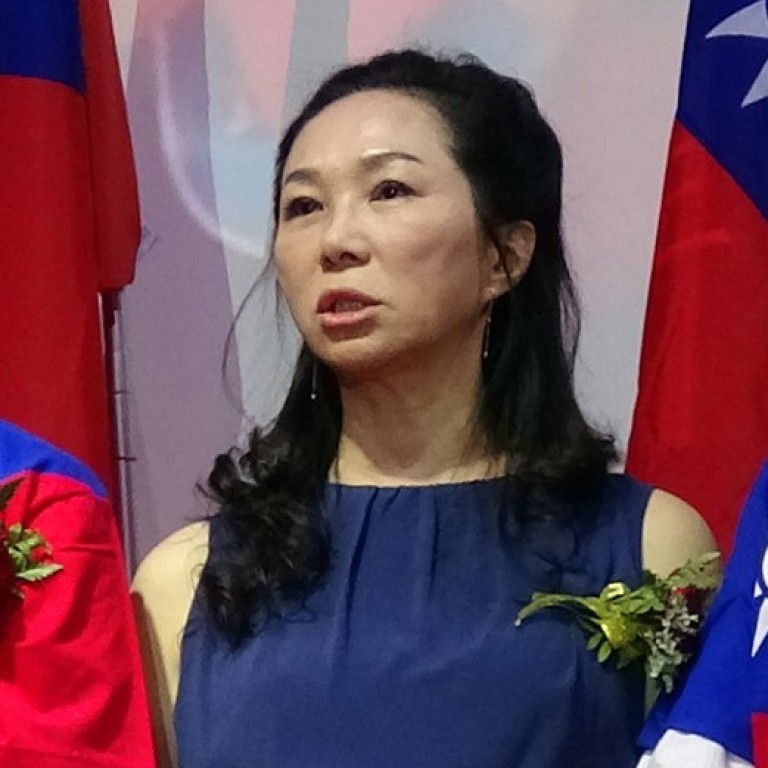
Wife of Taiwan presidential hopeful Han Kuo-yu scraps Singapore stop on campaign tour
- Lee Chia-fen was due to drum up support for her husband ahead of election showdown with President Tsai Ing-wen
- But Singaporean authorities said Lee would be closely watched amid a ban on ‘foreign political activities’, according to Han’s campaign office
The wife of Taiwanese presidential candidate Han Kuo-yu has cancelled a trip to Singapore over “security concerns” and the ban on “foreign political activities” in the city state.
Lee Chia-fen, who is currently in Malaysia, has visited several Asian countries including Japan, Cambodia and Indonesia to drum up support for Han ahead of his election showdown with President Tsai Ing-wen in January.
The campaign office for Han, who represents the Beijing-friendly Kuomintang, said on Monday that it had scrapped an election event in Singapore after the government told organisers of security concerns and warned that it was closely watching political events, according to Taiwanese media.
An estimated 50,000 Taiwanese voters live in the Lion City.
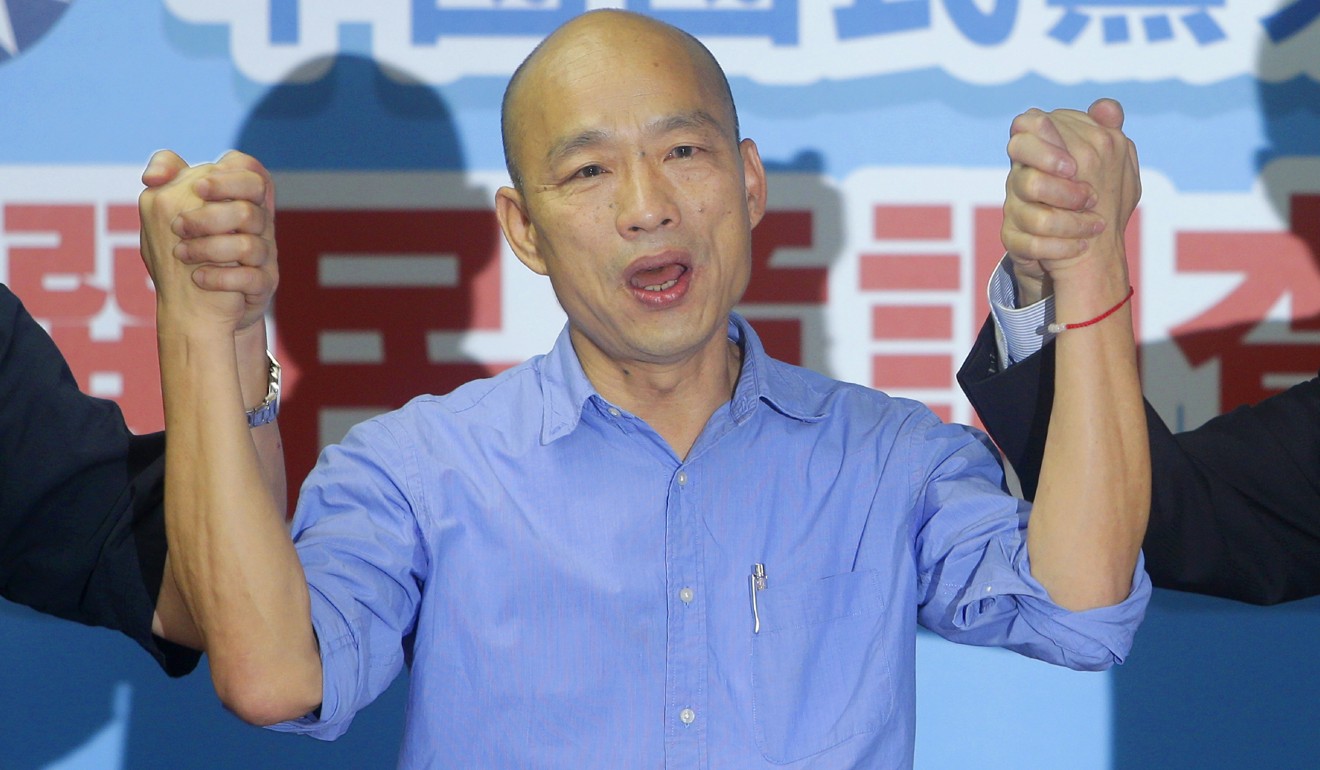
On Tuesday a campaign spokesman said Lee’s trip had been called off in order to “not make things difficult”.
Singapore’s foreign affairs ministry issued a statement saying “the government does not permit the conduct of foreign political activities, including campaigning and fundraising”.
“We have consistently maintained the same policy for all parties … [and] expect all residents and visitors to respect and abide by our laws,” the ministry said on Tuesday.
Lee’s tour comes as campaigning heats up for the presidential and legislative elections on January 11. A recent poll by the Taiwanese Public Opinion Foundation found the Kuomintang trailing Tsai’s Democratic Progressive Party, with 55.2 per cent of voters supporting the incumbent against only 26.3 per cent for Han.
Beijing regards Taiwan as a breakaway province that must be united with the Chinese mainland, by force if necessary.
Peh Shing Huei, a Singapore-based writer and formerly a foreign correspondent in Beijing, said Singapore’s statement was in keeping with its approach to diplomacy as a small country.
The city state had been firm in opposing foreign interference in its local politics and similarly would not want to be seen as “meddling in other countries’ domestic politics”, Peh added.
Taiwan presidential hopeful Han Kuo-yu says ‘no peace deal with Beijing until threats end’
“The moment the country is seen as a stakeholder in Taiwan’s elections, I think there will be a lot of trouble going forward,” he said.
The Southeast Asian nation has no formal diplomatic relations with Taiwan but has close informal ties, including military links that Beijing opposes. Since 1975, under a deal signed by Singapore’s first prime minister Lee Kuan Yew and then Taiwanese leader Chiang Ching-kuo, troops from the Lion City have been allowed to train in Taiwan.
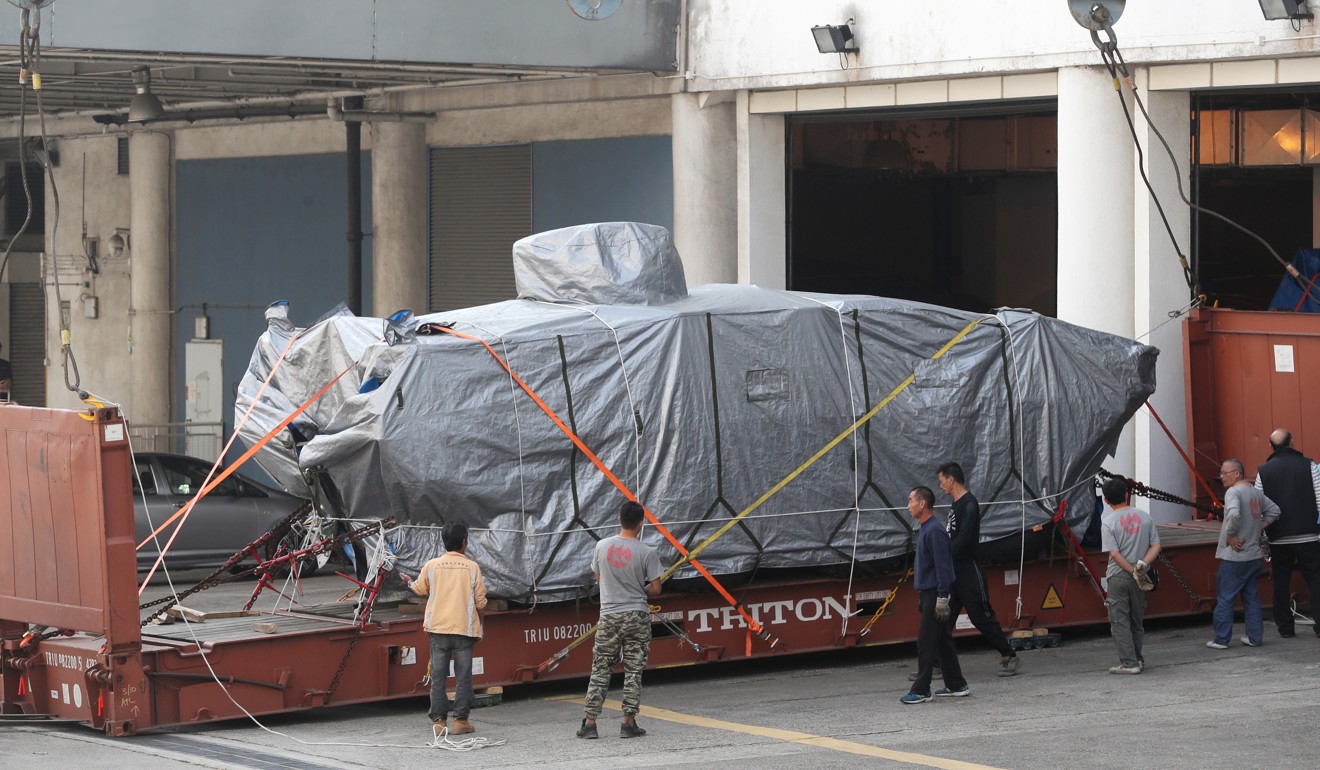
Singapore’s relationships with both Beijing and Taipei were tested in November 2016 when nine armoured vehicles on their way back from Taiwan were impounded in Hong Kong, leading to suspicions that the move was Beijing’s way of warning the city state, while isolating Taiwan.
Hong Kong maintained it was investigating the shipping company transporting the vehicles and authorities there claimed Beijing was not involved. But diplomatic wrangling over the return of the Terrex Infantry Carrier Vehicles sent Sino-Singapore ties into a downward spiral.
Who is Han Kuo-yu: could Kaohsiung’s populist mayor be Taiwan’s next president?
The episode came after Singapore’s envoy to China, Stanley Loh, verbally sparred with the editor-in-chief of the nationalistic Chinese state-owned tabloid Global Times, claiming the publication had wrongfully represented Singapore’s position on territorial disputes in the South China Sea.
In 2016 an international court ruled in favour of the Philippines in its dispute with China over the resource-rich waters. The newspaper said in September that Singapore wanted to include the Philippines’ position in a document to be released for a summit of countries in the Non-Aligned Movement – a forum of 120 developing states not formally aligned with or against any major power bloc. Loh said the report was inaccurate.
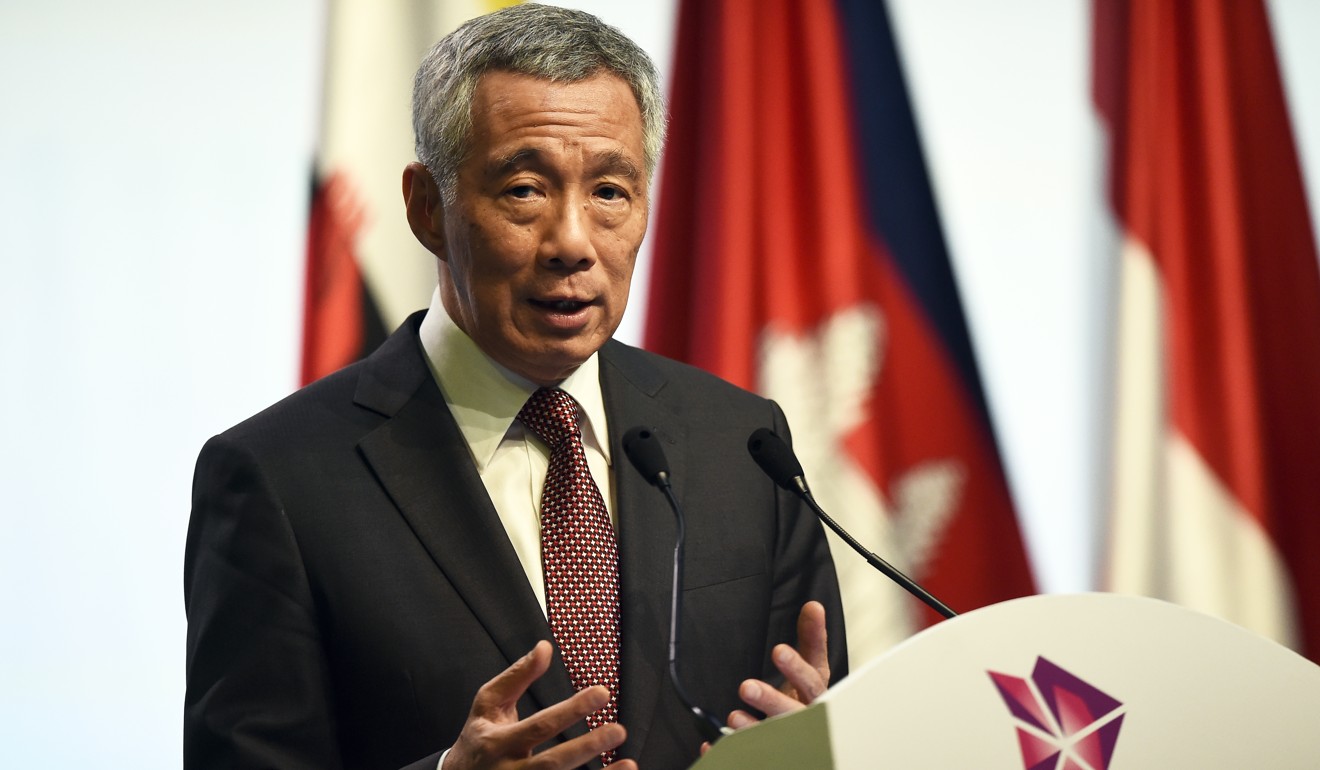
Then, in 2017, Beijing did not invite Singaporean Prime Minister Lee Hsien Loong to the inaugural Belt and Road Forum to discuss China’s signature global trade initiative, leading analysts to conclude that bilateral ties were still strained, although officials in Singapore tried to shrug off talk of a rift.
The snub was not the first time the Singaporean leader had come under pressure from Beijing.
In 2004, months before he took over as prime minister, he embarked on a private visit to Taiwan where he offered to mediate in any talks with mainland China, but the move triggered a furious response from Beijing, which temporarily suspended high-level diplomatic exchanges.
KMT presidential candidate Han Kuo-yu says 2020 election will be life-or-death battle for Taiwan
However, in 2015 Singapore became the site of the first-ever meeting between leaders from Beijing and Taiwan when President Xi Jinping held a summit with then-president Ma Ying-jeou from the Kuomintang less than three months before an election on the self-ruled island.
Peh said the Xi-Ma meeting and other past events showed Singapore had consistently been a neutral player owing to its long-standing relationship with Taipei dating back to before the city state established formal ties with Beijing, and because Lee Kuan Yew was seen as an “honest broker” between the two sides.
“I think that has given Singapore the kind of trust from both Beijing and Taipei that can be hard to find in this increasingly difficult environment,” he said.
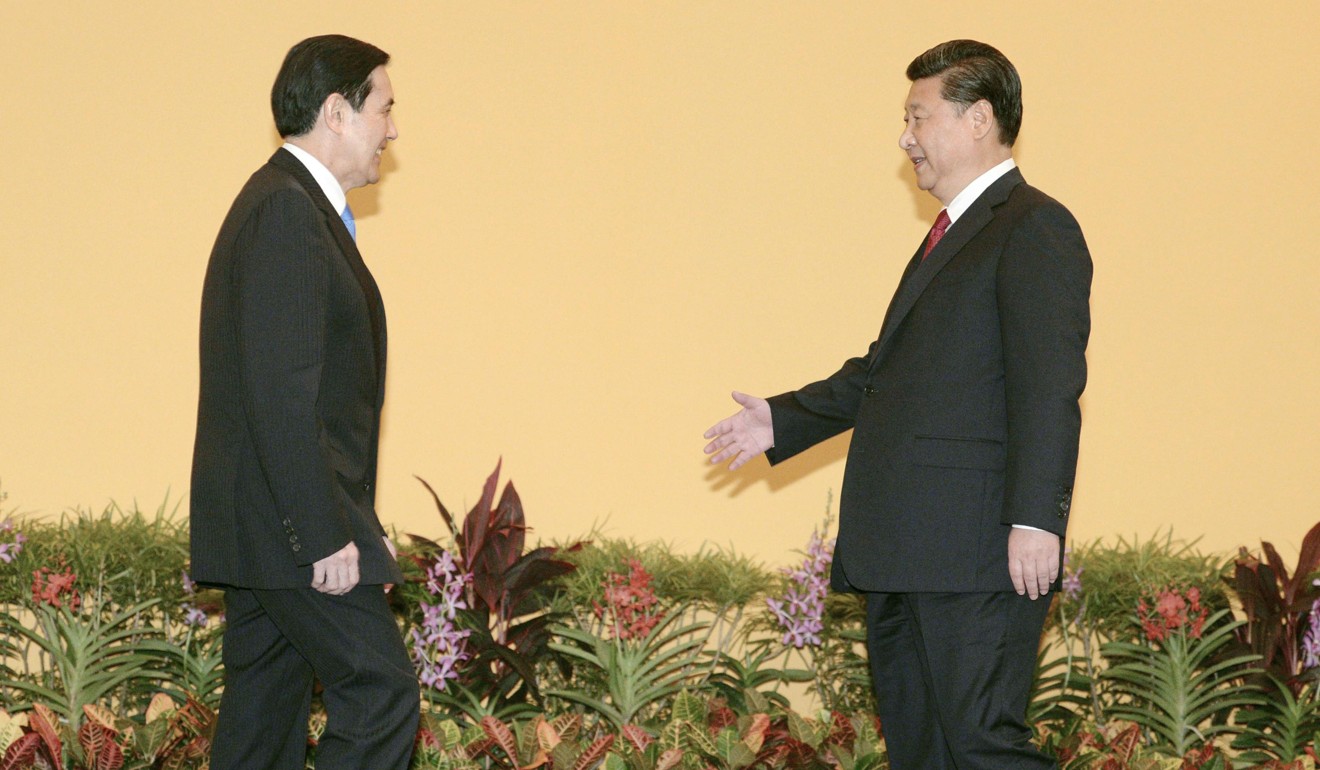
William Choong, a senior fellow at the International Institute for Strategic Studies, said Tuesday’s statement from Singapore had come in tandem with its efforts to prevent political activities by other foreign players.
He cited the recent repatriation of Hong Kong restaurateur Alex Yeung Kwun-wah for organising a public gathering in October without a permit for attendees to air their views on the continuing anti-government street protests in Hong Kong.
“In retrospect, it could well be that Lee Chia-fen didn’t do her homework [to] check if Singapore allows political campaigning by foreign entities on Singapore soil,” Choong said.
Singapore political scientist Chong Ja Ian said the city state was keen to avoid setting any precedent by allowing Lee Chia-fen to campaign, despite the government being eager to accommodate Beijing’s interests.
“Apart from foreign policy considerations, the Lee [Hsien Loong] administration probably worries that such actions could also set in motion domestic political forces it is uncertain about or fearful of,” Chong said.

